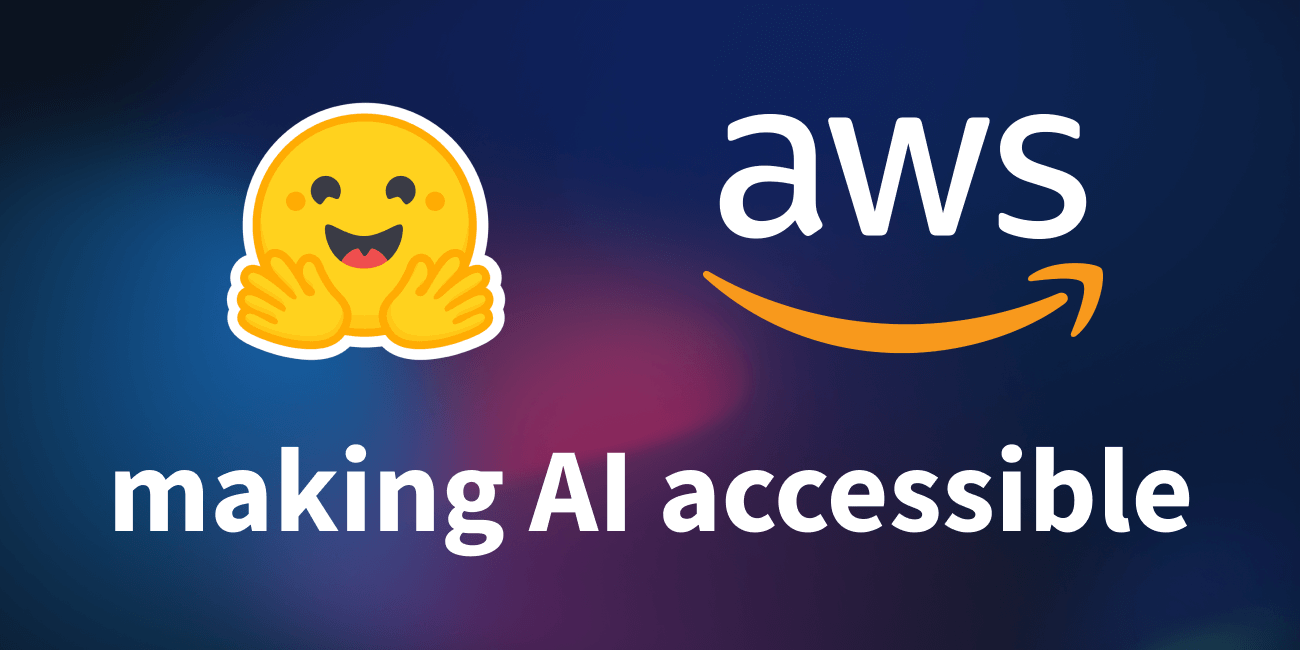AWS and Hugging Face aim to make next-generation models and AI more accessible

With OpenAI, Microsoft has shown how an AI partnership can work: The big guy brings the computing power, the little guy brings the innovation and community. Amazon and Hugging Face could follow a similar path, albeit on a smaller scale at first.
Amazon has been seen as a driving force in artificial intelligence for several years, largely because of its massive server infrastructure under the banner of the AWS (Amazon Web Services) cloud.
Now, the U.S. company has announced a long-term collaboration with Hugging Faceto accelerate the training, tuning, and deployment of large language and image models used to build generative AI applications.
Previously, Hugging Face was available through the Amazon SageMaker cloud deployment platform. In December 2022, Stable Diffusion developer Stability AI and AWS had also announced a partnership.
Chatbot becomes central code repository
Hugging Face is one of the central hubs for AI development. The New York-based startup first went live as a chatbot in 2017, but the following year it quickly became one of the most important code repositories for machine learning.
It claims to host more than 100,000 free models, which developers download more than a million times a month. The company is now valued at around two billion dollars.
Clem Delangue, head of Hugging Face, told Reuters in an interview that the company plans to use Amazon's computers with its proprietary Trainium AI chip for the next generation of its open-source Bloom language model, for example.
Bloom is a large open-source language model
Bloom is seen as a promising open-source alternative to OpenAI's GPT-3. It is capable of generating coherent text in 46 languages and 13 programming languages that is "indistinguishable from text written by humans". You can try it out on Hugging Face.
Hugging Face will invest "significant technical resources" in the joint products, Delangue added. According to Hugging Face's blog, they want to "democratize" machine learning together with AWS.
There have been significant advances in new Transformer and Diffuser machine learning models that process and generate text, audio, and images. However, most of these popular generative AI models are not publicly available, widening the gap of machine learning capabilities between the largest tech companies and everyone else.
Hugging Face
At second glance, the announcement of the strengthened partnership is hardly surprising. Few other companies in the world have the infrastructure to compete with the merger of OpenAI and Microsoft. And those that do, like Google and Meta, are working on their own language models.
AI News Without the Hype – Curated by Humans
As a THE DECODER subscriber, you get ad-free reading, our weekly AI newsletter, the exclusive "AI Radar" Frontier Report 6× per year, access to comments, and our complete archive.
Subscribe nowAI news without the hype
Curated by humans.
- Over 20 percent launch discount.
- Read without distractions – no Google ads.
- Access to comments and community discussions.
- Weekly AI newsletter.
- 6 times a year: “AI Radar” – deep dives on key AI topics.
- Up to 25 % off on KI Pro online events.
- Access to our full ten-year archive.
- Get the latest AI news from The Decoder.